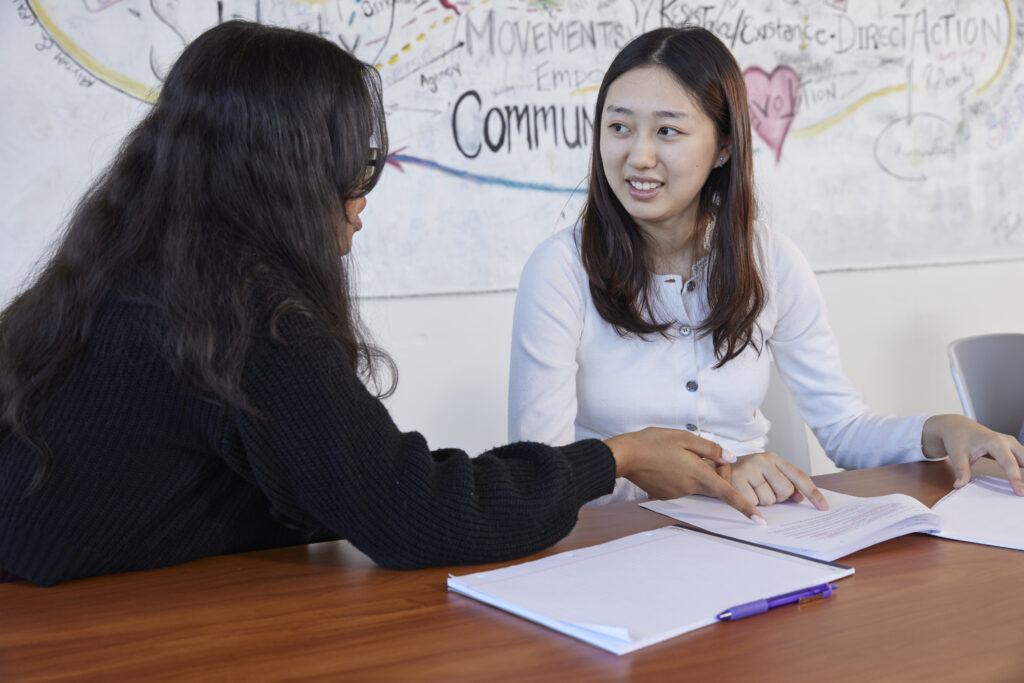STORY BY CHRISTINE SISMONDO
Over a year in the planning, the Health Engaged Learning and Mentorship program (HELM) launched in May of 2024. So far, the initiative, which is offered by the Faculty of Health’s Colleges, Calumet and Stong, has helped more than 50 “at-risk” students in the Faculty of Health get their academic careers back on track.
“HELM was designed to support students in the Faculty of Health with a grade point average that fell below a certain threshold and had been given an academic penalty,” explains Mazen J. Hamadeh, Associate Dean for Students, Faculty of Health.
In lieu of losing a year—or two—of schooling, students can now enroll in HELM, which involves an online course on strategies for student success, academic counseling and, finally, engaging in one-on-one peer mentoring with an upper-year student.
All of HELM’s mentors have undergone two levels of training, starting with the standard Foundational Peer Leadership Training (FPLT) and then, after that, a targeted program that helps mentors better understand mental health support, as well as enhance their active listening and effective communication skills, thanks to the Colleges’ partnership with Student Counselling, Health and Well-being.
“That training is a very important piece in terms of how we support students,” says Hamadeh. “Students listen to other students. Students trust other students. And we know that because there’s been more than 50 years of data around that.”
There are currently 27 peer mentors working to support participants in the program, according to Isabella Maltese, Student Success Coordinator in the Colleges. So far, she’s only heard positive things through HELM’s weekly feedback process.
“It’s fantastic to see, not only from the participants, but also the mentors who come back to me and say they feel really rewarded coming out of their sessions,” says Maltese.
One of the peer mentors, Sabrina Brusco, a fifth-year student in Kinesiology and Health Science with a minor in Biology, is supporting two students, one of which she sees weekly for 30-minute check-ins, during which they talk about things like time management and strategies for studying.
"I’m empathetic towards the challenges students face, because many students have a lot going on in their lives while they're in school,” Brusco says. “That can become especially tiring during mid-term and exam seasons when school gets busier. But I always encourage self-care, and I remind students that taking time for yourself and taking breaks is important because that makes you feel less mentally exhausted. I think it’s both the accountability and motivation that makes the sessions helpful."

Maltese and the team are taking time to experiment with other uses for HELM, as well as plan future programming.
“We’re working on developing a couple of things, including a program to help transfer and incoming students feel prepared for university life from the get-go.” Maltese says. “This would help them with everything from what to expect in the university classroom to key academic skills.”
This initiative, as well as others, will be focused on helping students avoid academic penalties from the outset. Peer mentorship will be an essential component of these programs, which is great news for both at-risk students and peer mentors, given that it’s generally a rewarding experience for both parties.
“It’s a nice way to tie up a lot of the experiences I’ve had at York in what is, hopefully, my final year,” says Brusco. “I feel like I've gone full circle from the person who needed a lot more support and guidance to being where I am now, with a work-study position and several other extracurriculars on campus—things on campus that allow me to offer support to people just starting out.”
